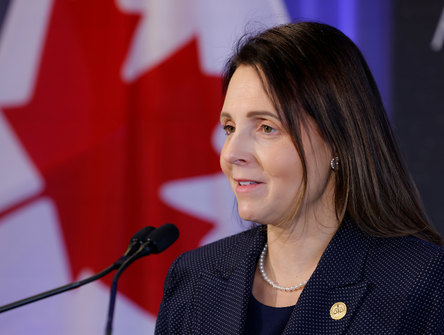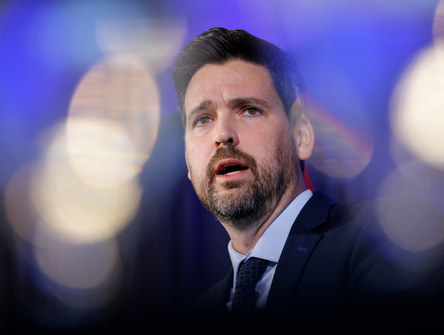Thinking about the obstacles people face
This year's Touchstone Award recognizes Professor Laverne Jacobs.
.jpg?ext=.jpg)
If we are to address disability inequality, says Professor Laverne Jacobs, we need to start by acknowledging the structural inequalities facing people with disabilities in daily life
Unfortunately, it took a crisis like the COVID-19 pandemic to force society to think about equality issues differently, she notes. “Nevertheless, this is the biggest catalyst that I have seen in our time.”
Jacobs, who founded and directs the Law, Disability & Social Change Project at Windsor University, is the recipient of this year’s Touchstone Award that recognizes efforts to further equality in the legal community.
As a Black woman with a disability, she hopes the award will encourage legal professionals to think about the obstacles faced by people with disabilities. '"Nothing should be done ‘without us,’" she says. "And so I hope that this award will also inspire further allyship than what already exists.”
Jacobs, who experienced a spinal cord injury during her career, has been involved with the Ontario Bar Association since she was a graduate student. She served on the executive of its Administrative Law Section. This experience “has provided me with opportunities to think about the challenges faced by people with disabilities in the administrative justice system,” she explains, noting that access and equality for marginalized communities within the administrative justice system features prominently in her work.
Jacobs often reflects on intersectional challenges. She proudly points to the student researchers at the Law, Disability & Social Change Project to illustrate how their interests range from family law and business law to administrative and criminal matters, and other fields not directly related to disability.
“The students, despite their backgrounds and areas of legal interest are brought together through an effort to view situations in society through the lens of disability equality,” she explains. “When the students graduate and enter into practice, they are thinking about how disability inequality manifests itself in their practice area and, more fundamentally, with respect to the client circumstances that arise before them.”
Understanding the law is important, she says. But meaningfully advancing equality “is to set the law aside and think about how to be a good human being.”
The Touchstone Award celebrates the accomplishments of an individual or an organization who has excelled in promoting equality in the legal profession, the judiciary, or the legal community in Canada. The award recognizes successful promotion or furthering of equality at the national level or a significant contribution relating to race, gender, disability, sexual orientation or other diversity issues in the recipient’s community.
__________
Laverne Jacobs is Associate Dean (Research & Graduate Studies) and an Associate Professor at the University of Windsor, Faculty of Law. She teaches, researches and writes in the areas of law and disability, administrative law and human rights. Her work is characterized by an interest in the everyday experiences of people with disabilities, particularly as they engage with the law, and in ensuring equality, inclusion and fairness within the legal system. Dr. Jacobs is particularly interested in issues at the intersection of disability, equality and the administrative justice system. She has published and presented widely in her fields, in Canada and internationally.
Dr. Jacobs founded and directs The Law, Disability & Social Change Project, a research and public advocacy centre at Windsor Law that works to foster and develop inclusive communities. Working from the disability rights motto, “nothing without us”, the centre undertakes a variety of projects that aim to feed grounded research and theory into policy development and legal decision-making. She is also co-director of the Disability Rights Working Group at Berkeley Law’s Center for Comparative Equality & Anti-Discrimination Law.
Professor Jacobs held the inaugural Fulbright Visiting Research Chair in Canadian Studies at the University of California, Berkeley, and was a Visiting Scholar at Berkeley Law’s Center for the Study of Law and Society. Outside of the University, she has held Order-in-Council appointments as a part-time member of the Human Rights Tribunal of Ontario and as a member of the Accessibility Standards Advisory Council under the Accessibility for Ontarians with Disabilities Act, 2005. She has served on the board of directors of a number of organizations including the Income Security Advocacy Centre, the Canadian Institute for the Administration of Justice, and Beyond Disability of Windsor-Essex. You can read more about Laverne Jacobs here.


